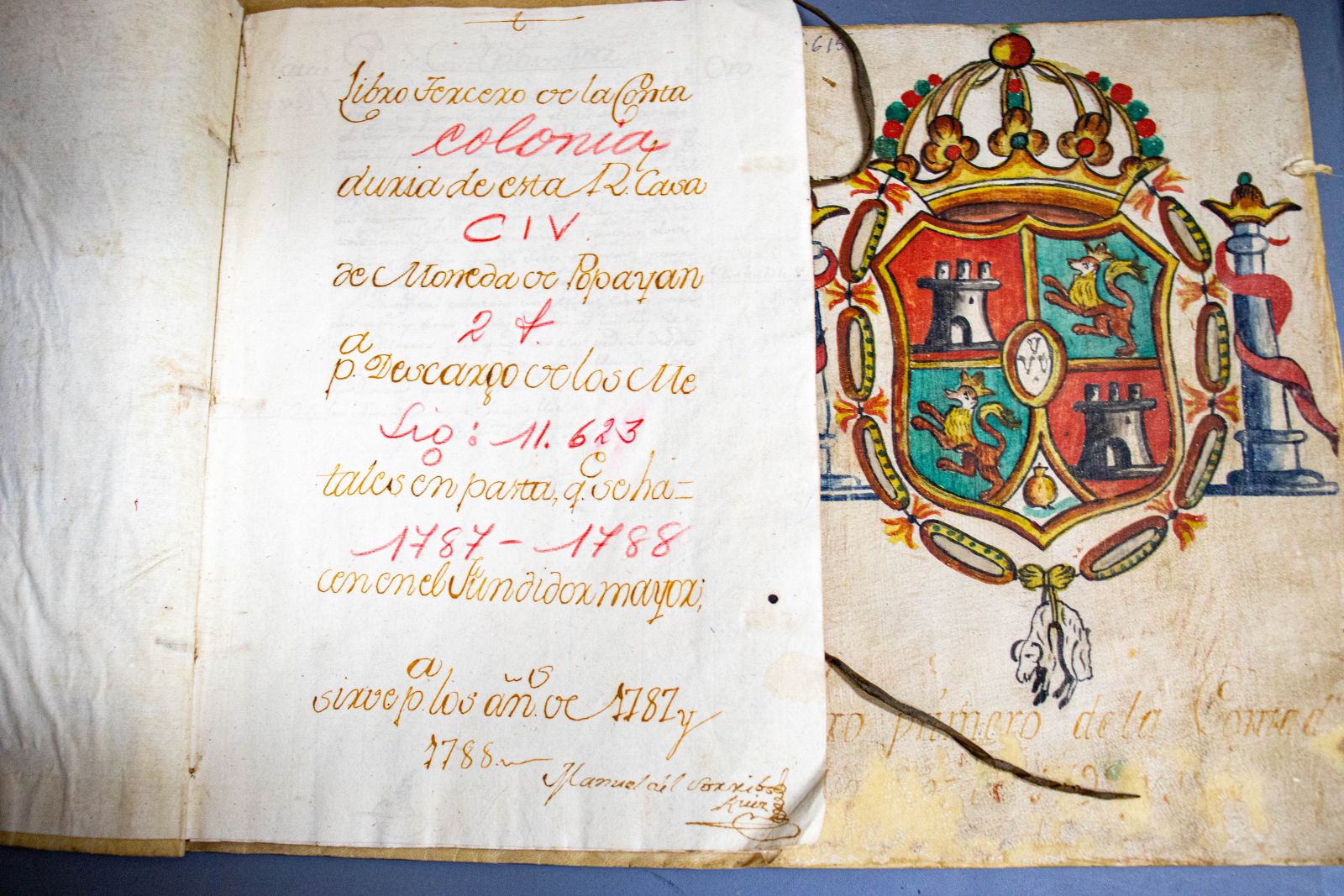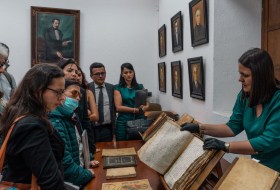News
Good news: UNESCO recognizes the section preserved by the Historical Archive of the University of Cauca as part of the Memory of the World
During the XXIII Meeting of the Regional Committee for Latin America and the Caribbean of UNESCO's Memory of the World Program (MoWLAC), held on November 27 and 28 in Santiago, Chile, the Colonial Section of the Fondo Antiguo Archivo Central del Cauca, preserved by the José María Arboleda Llorente Historical Research Center of the University of Cauca, was recognized among the 23 new inscriptions to the program. This is excellent news that fills us with joy.
For the University of Cauca, it is a source of deep pride to share with the university community and the public that the Colonial Section of the Fondo Antiguo Archivo Central del Cauca is now part of UNESCO's Memory of the World Program. This achievement is undoubtedly the result of the teamwork carried out by the José María Arboleda Llorente Historical Research Center. It is important to note that the Colonial Section constitutes a documentary heritage of incalculable value for the study of the colonial period, providing information on the political, administrative, and judicial apparatus that the Spanish Empire exercised in the then Governorate of Popayán, which covered 70% of present-day Colombian territory and addressed judicial, civil, ecclesiastical, military, and other matters.

But why is this recognition important?
The Memory of the World Program was created by UNESCO in 1992 with the aim of promoting the preservation and access to the documentary heritage of humanity. Due to various factors such as lack of resources, looting, wars, and illegal trade, documentary heritage becomes sensitive material that can be destroyed or lost, highlighting the urgent need to safeguard it.

This is why our university has the José María Arboleda Llorente Historical Research Center, the most important archive at the regional level and the second at the national level, not only due to the age of its documents but also because of the volume, continuity of information, and degree of cataloging. In this collection, interested parties can find historical information about Popayán, Cauca, and other municipalities and departments of the country.

This Center is part of the Faculty of Human and Social Sciences and was established in 1970, based on the documents of the former Central Archive of Cauca, rescued and cataloged by Mr. José María Arboleda Llorente from 1928 until his death in 1969.
"Welcome, this is your home, the home where the University of Cauca preserves the memory of Colombians. I think we now have to say: the home where the University of Cauca preserves part of the memory of the world," expressed the enthusiastic director of the Historical Research Center, Beatriz Eugenia Quintero Espinosa.

Quintero highlighted the effort of the team that ensured the Fondo Antiguo Archivo Central del Cauca became part of the documentary heritage of humanity and encouraged citizens to explore the historical archives, which hold immense potential to answer numerous questions and contribute to building a collective memory that strengthens society.

Thus, from this University of Excellence and Solidarity, we celebrate with great joy and express our heartfelt gratitude to all those who made this achievement possible. Your support drives us to continue striving to preserve the memory of humanity from Popayán, one of the missions that, as a center of regional thought, also motivates us.

Therefore, as we bid farewell to the month of celebrating the 196th birthday of the Alma Mater of Cauca, we welcome the end of the year with the happiness of doing things right, continuing processes that began under the previous administration and that today, as we approach the Bicentennial, allow us to say that Unicauca is #HeritageOfAll.
Further information
Historical Research Center
Email: archivoh@unicauca.edu.co


